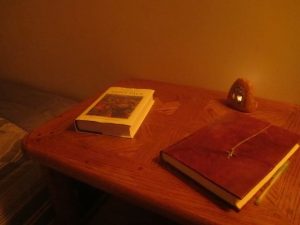 The daily life of a brother or sister within the Fellowship’s communities is a balance of personal reflection and group communion. Our day begins upon waking, with prayer and contemplation in preparation for the activities of the day. This is a time for self-reflection, where a brother or sister may ponder their dreams from the past night, reflect on those aspects of the personality or behavior that separate them from others, and the steps they will take throughout the day to break down those barriers in their work with others.
The daily life of a brother or sister within the Fellowship’s communities is a balance of personal reflection and group communion. Our day begins upon waking, with prayer and contemplation in preparation for the activities of the day. This is a time for self-reflection, where a brother or sister may ponder their dreams from the past night, reflect on those aspects of the personality or behavior that separate them from others, and the steps they will take throughout the day to break down those barriers in their work with others.
The Agape – or communal meal – is central to community life. Brothers and sisters meet twice daily for group meals. One or more brothers or sisters prepare and serve the meal, which is accompanied by group prayer, readings, and discussions. This is the most important time for group sharing, feedback, instruction, and planning activities. It’s at the communal table that we discuss the results of our studies, share ideas, work through interpersonal issues, and come to a greater understanding of ourselves, the world, and the divine.
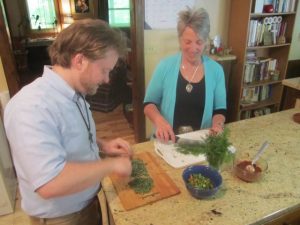
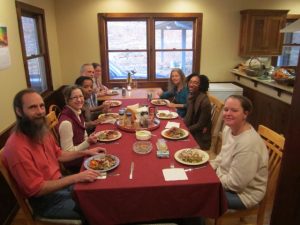
As a basis of study and meditation, the library is a central point of our vocational life.
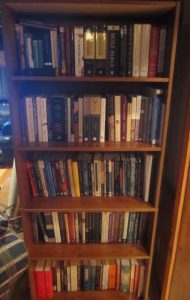
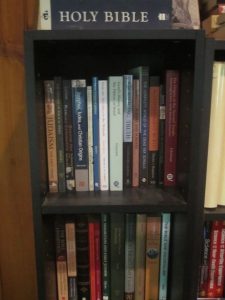
A portion of each day is spent in study. In their quest for truth, each brother and sister makes an effort to acquire knowledge of God’s creation through religious texts, history and scholarly research, philosophy, psychology, science, and current events. All aspects of knowledge are connected, and a wide-ranging course of study illuminates one’s understanding of scripture, the self, humanity, and God.
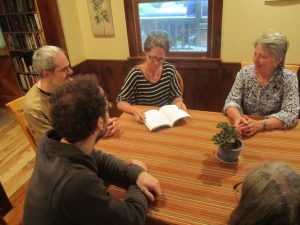
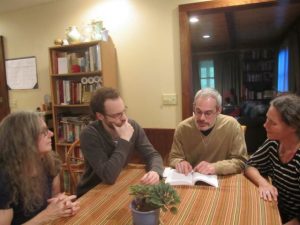
The knowledge and insights gained through personal study are only useful in a community if they are put into practice and shared. Whether in group discussion, lectures, or writing, a brother or sister benefits all through living and sharing what they learn.
There is no free lunch. Each brother and sister of the Fellowship maintains a work ethic that includes manual labor. This not only brings us into solidarity with all those who must work for a living; it teaches important skills, self-sufficiency, self-sacrifice, and humility. Through this, we do our creative duty for the divine cosmos, as the Divine can only work through the hands of its creation. Among the activities in which we engage are carpentry, ‘paleo’ cooking and baking, sewing, knitting, embroidery, soap-making, gardening, and any other kind of activity that calls for balance between body, mind, heart, and spirit.
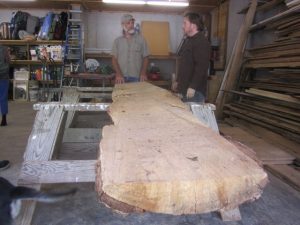
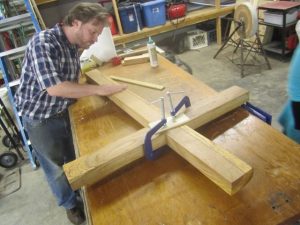
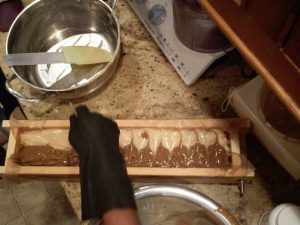
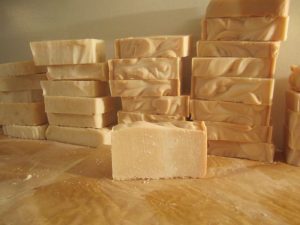
The state of environment reflects the state of our inner being, and living in a healthy and clean environment promotes the spiritual quest. As such, we strive to maintain and develop our facilities and their grounds.
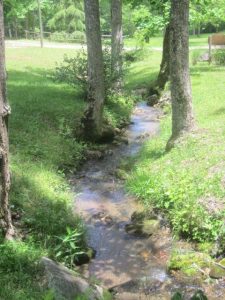

Singing together brings us closer to each other, and to God. Weekly music services and choir practice bring all our voices into one.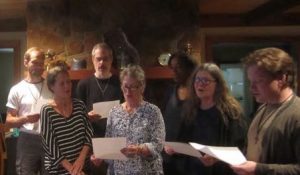
The Fellowship’s brothers and sisters organize regular meetings for members outside the community, where they hold group lectures and discussions on Paleochristian life and what they have learned in the community, engage in group activities, and foster a general spirit of brotherhood. Guests of all nationalities, backgrounds and beliefs are welcome.
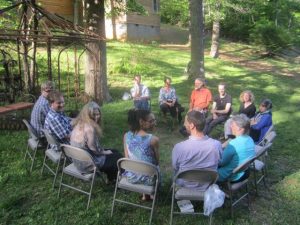
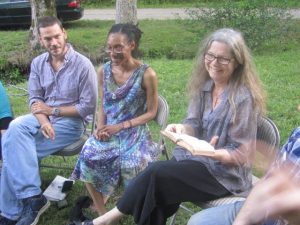
Just as one individual in isolation is not a community, a Fellowship community is not a true community without its connections with the wider body of the world, and other Paleochristian communities in the body of Christ. To develop this wider network of community interaction, brothers and sisters engage in local volunteer work and maintain connections with Paleochristians worldwide. When possible, brothers and sisters may visit other Paleochristian communities to further share and learn, and to strengthen existing community bonds.
Along with community and vocational activities, the Fellowship also publishes books and maintains ongoing discussions in its founding forum online. Lectures by the founder are also published in video online.
For more information about our community’s vocational life, see: How To Become A Brother Or Sister Of The Fellowship.
